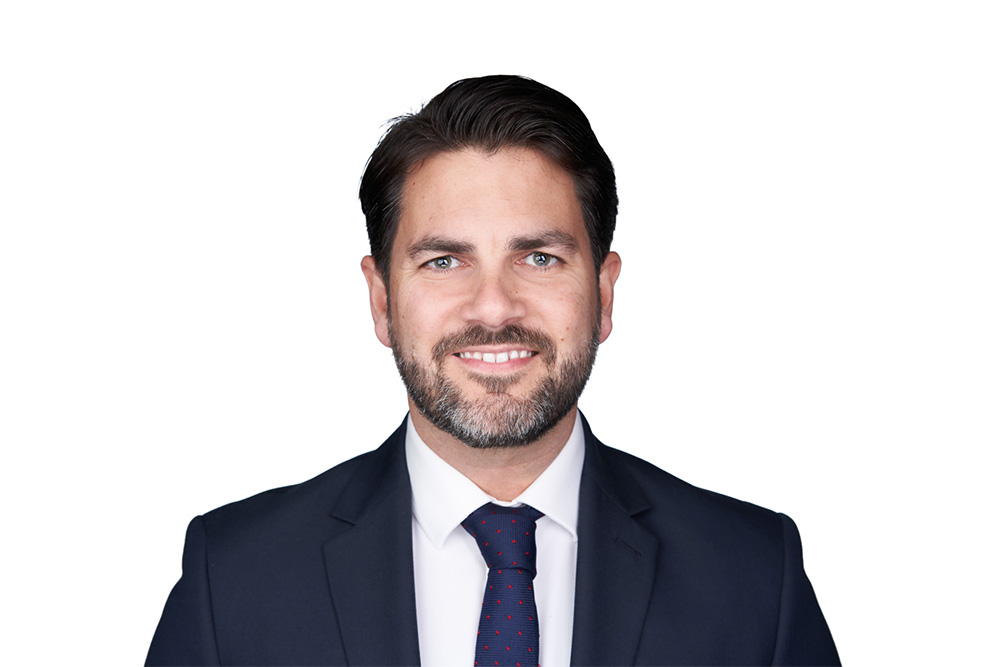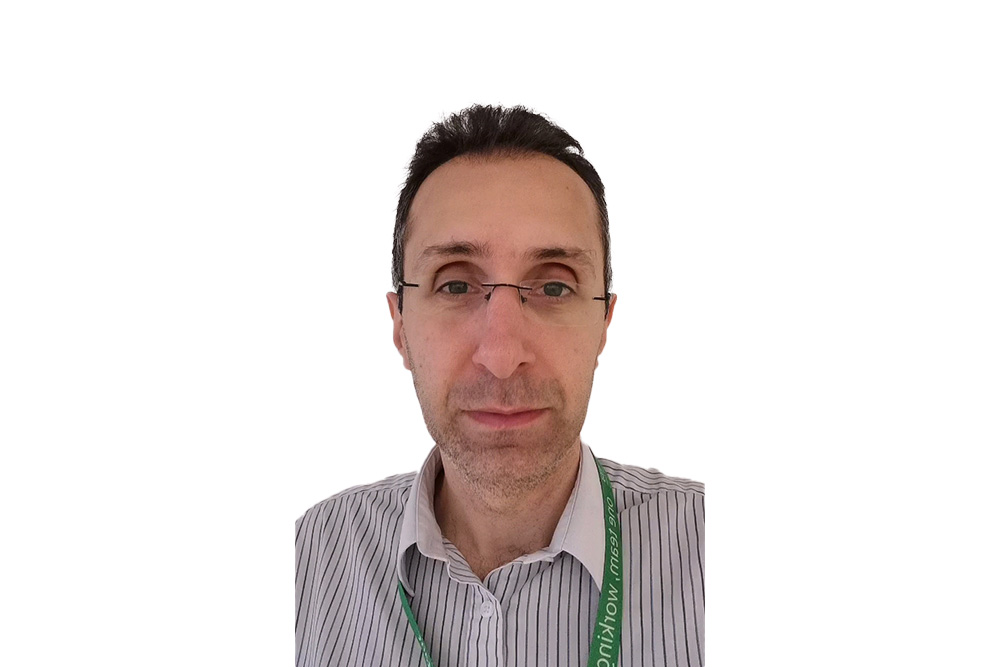
New Cardiology CMO appointed as Dr Sayer retires
February 2, 2026
SCORacle Newsletter - April 2024 Edition
It was the end of an era at the close of Q1 2024. SCOR Cardiology CMO, Dr Jeremy Sayer has decided to hang up his stethoscope and retire. Dr Sayer has been SCOR’s Cardiology CMO for over 20 years and we have been so very grateful for all the advice and wisdom he has shared with us over the years.
An Interventional Cardiology Consultant based at the Princess Alexander Hospital in Harlow and the Basildon Cardiothoracic Centre in Basildon, Dr Sayer has been an amazing resource for the underwriting and claims teams at SCOR over the years and the actuarial teams assisting with research.
As a parting gift, Dr Sayer helped SCOR source a successor for the role of Cardiology CMO. We are delighted to welcome Dr Firas Al-Janabi to SCOR. Previously a Registrar working under Dr Sayer, he is now a Cardiology Consultant working at Broomfield Hospital and the Essex Cardiothoracic Centre.
Paul Blyth sat down with Dr Al-Janabi to find out a bit more about him.
Welcome to SCOR, please tell us a little about yourself, outside of work.
Thank you! I’m Firas, a Cardiology Consultant working at Broomfield Hospital and the Essex Cardiothoracic Centre. I live with my wife and two daughters in Great Notley, Essex. Outside of work, I play five a side football regularly. I also play the electric guitar (not very well!) I enjoy computer technology and have built computers in the past. I enjoy films, especially science fiction.
What motivated you to pursue a career in cardiology?
I liked the mixture of basic medicine and interventional procedures. Interventional Cardiology is very technical and, in some aspects, very surgical. I found the mix of the two appealing and a welcome change of pace in my day-to-day work. I am privileged to have the ability to make an impact on patient’s symptoms, and the emergency intervention we do is very rewarding. The change I see in patients from one day to another after our treatment is an amazing reminder to a difference we can make. I work with amazing teams of people who are dedicated to getting the best outcomes in the people we treat. I also enjoy how dynamic Interventional Cardiology is, with new technology and techniques in constant development. It keeps the field fresh and full of opportunity.
How do you address the challenges of staying current with rapidly evolving technologies and treatment modalities in the field of cardiology?
It can be a real challenge, but I think comes down to your own motivation and support from your trust or hospital. We have to keep ourselves updated with private study, conferences and regional meetings. Moreover, I have been very lucky to have been given opportunities in pushing forward new technology, with support from hospital management and industry. They, along with our hospital research team have allowed me to implement the only renal denervation service in Essex (a form of treatment for blood pressure), which has formed my niche subspecialty. All of this is time consuming, and trying to balance this with a busy work and home schedule can be difficult. Involving and working with a dedicated team has made the process much more accomplishable.
What technological advancements are you particularly excited about in the world of cardiology?
Renal Denervation of course! This has formed a lot of my specialist interest over the past 3-4 years. My colleagues and I are also very excited about the evolving field of structural cardiology. We are able to do things now via keyhole surgery which for decades has been dealt with by open heart surgery alone. This means treatment can be available for those not fit enough for traditional surgery. Recovery and hospital stay times are also much better. I feel as interventional cardiologists, many of us will become more heavily invested in structural work as the technology and knowledge grows.
How do you envisage integrating research and innovation into the cardiology department to enhance patient outcomes?
I feel this is a constant process. Driven by constant on-going research and clinical governance, it is our duty to constantly innovate and improve our practice. We are involved in dozens of cardiology trials across Essex with some of the best researchers in the world. Simply being part of this has improved our practice, but seeing the outcomes and integrating them into our everyday practice is the backbone of evidence based medicine. At a local level, we constantly analyse our outcomes and complications to make sure we comply and are hopefully better than the national averages.
In the face of emerging healthcare challenges, such as the impact of the COVID-19 pandemic, how have you adapted through uncertain times?
Technology has certainly helped. The NHS is more stretched than it has ever been, down to a growing and aging patient population. Advancements in healthcare applications via smart phones, video technology and remote monitoring of certain conditions has helped. Virtual wards are being trialled at the Essex CTC, where patients who would normally be in hospital waiting for heart surgery are looked after at home, by a group of healthcare professionals using telecommunication software.
On a personal level, we have all had to make challenging adaptations, which could mean working more hours, doing more weekend work or covering more patients than we normally would. I think the NHS and certainly the workforce have placed a much larger emphases on wellbeing, and quite rightly. I know colleagues who have certainly suffered mental fatigue and burnout over the COVID pandemic and beyond. Clear communication and team working from departmental to board level have been key in trying to maintain standards in the face of changing healthcare demands.
Do you now engage with patients remotely in light of technological advances in patients home monitoring and what are the challenges to this?
Absolutely. This was the mainstay of communication during COVID lockdowns. I feel there are very clear roles where we can be using such technology – for example checking pacemakers automatically at home via a hub by the patient’s bedside, so elderly and less mobile patients do not have to travel to hospital for a check.
I also feel however, that doctors and patients do need that face-to-face connection when deciding on how to investigate and treat someone. The pitfall of remote consultation is one often does not get a clear and wholistic picture of that individual patient, and I find generating rapport is much more difficult. Personally, I like to see almost all my patient’s face to face, and I strongly think patients prefer that too.
Prior to becoming SCOR’s CMO, what was your previous experience with insurance?
Honestly not a huge amount! I had to respond to some requests for information, or deal with any issues some patient’s had regarding their insurance. My role in SCOR will be a new adventure to me, and I’m looking forward to it.
And finally, what are you most looking forward to in this role of CMO? And what challenges do you foresee?
I’m most looking forward to looking at medicine from a different angle. I’m also really looking forward to working with new people, some of whom I have met already, and providing support or assistance in any way I can. I have a keen interest in teaching and training, and if I can do that whilst accomplishing a team goal, I’d be delighted. I like problem solving and feel team working is essential to that.
My biggest challenge would probably be the initial learning curve, and really trying to understand how to apply myself in the most useful way. I am well aware that my predecessor Dr Sayer has done an outstanding job for SCOR, and I am honoured that he suggested me for this role. Jeremy has been a fantastic mentor to me since I was a junior doctor, and I truly hope I can provide the same level of care and diligence that he did for many years.

